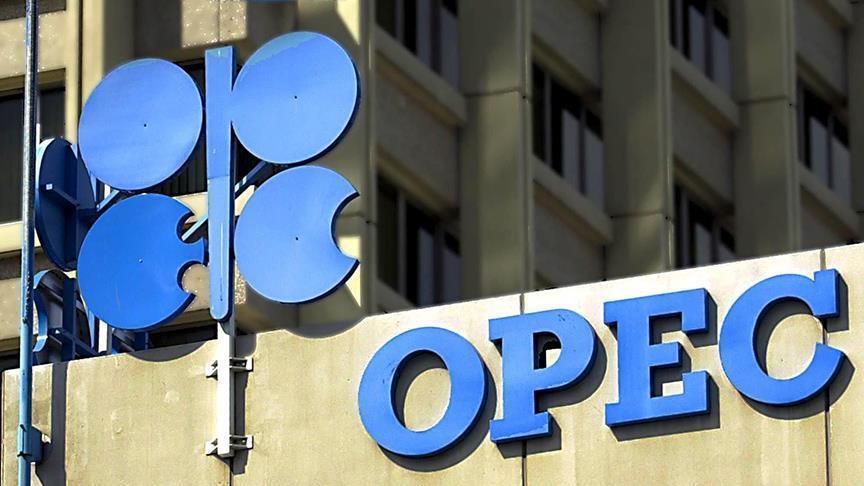A recent decision by the Organization of Petroleum Exporting Countries (OPEC) and allies, known as OPEC+, to reduce monthly production against expectations is forecast to raise oil prices by around $10 per barrel, with Brent crude even reaching $110 per barrel by summer.
During their 48th Joint Ministerial Monitoring Committee (JMMC) on Monday, OPEC+ confirmed their plan to continue oil output cuts of 2 million barrels per day (bpd) until the end of the year, with additional voluntary production cuts of around 1.66 million bpd starting in May.
Saudi Arabia led the way with 500,000 bpd of cuts, followed by Iraq with 211,000 bpd, the UAE with 144,000 bpd, Kuwait with 128,000 bpd, Kazakhstan with 78,000 bpd, Algeria with 48,000 bpd, Oman with 40,000 bpd and Gabon with 8,000 bpd.
Russia also announced that it would extend existing output cuts of 500,000 bpd until the end of the year.
Labeling the decision as a 'precautionary measure aimed at supporting the stability of the oil market,' the group said the total production cut would reach 3.6 million bpd.
Soon after the decision, the price of Brent rose 7.6%, closing the trading session on Monday at $84.93 per barrel.
Further production cuts by OPEC+ came nearly two weeks after prices fell to 15-month lows due to fears of spillover effects from the US financial crisis.
The price of Brent oil fell as low as $70.13 on March 20, while WTI traded at $64.38 a barrel, recording their lowest levels since December 2021.
-Worldwide reactions pour in after OPEC's decision
Speaking to reporters about the OPEC+ output cut decision, US Treasury Secretary Janet Yellen said it was an 'unconstructive act,' which could hurt US efforts to lower inflation.
'I think it’s a regrettable action that OPEC decided to take. I’m not sure yet just what the price impact will be, I think we need to wait a little longer for, you know, to really assess that,' Yellen commented.
Federal Reserve Bank of St. Louis President James Bullard also said the decision was unexpected and pointed to possible oil price increases.
The International Energy Agency (IEA) on Monday warned that the new OPEC+ cuts risk straining the tight oil market by pushing prices up during a period of strong inflationary pressures while hurting vulnerable consumers worldwide.
'Forecasts by the IEA and other relevant institutions, representing consumers and producers alike, all indicate that global oil markets are already set to tighten in the second half of 2023, with the potential for a substantial supply deficit to emerge,' the IEA said.
-OPEC+ decision is in line with market realities
According to Matt Stanley, the Middle East Partnerships lead at analytics firm Kpler, the OPEC+ output cut decision was not political, but 'very much based on current economic sentiment.'
Stanley cited growing concerns that demand will not pan out as expected, particularly in light of ongoing banking issues in Europe and the US, which indicate underlying financial problems.
He believes that OPEC was too late to respond to the recent financial crisis and is now trying to catch up 'to preempt any financial issues.'
'I think OPEC is looking at this and trying to take proactive action,' he said, adding, 'so, I think this is very much a decision the group made based on current market conditions as opposed to anything political.'
Stanley underlined that the recent OPEC+ output cut decision was made to protect the Brent oil price at the level of $80 a barrel, which he said 'financially leveraged oil income from energy.'
The decision 'puts a floor under $80 a barrel for Brent' and he said it also sends a message to the market that OPEC will do what they have to do when they have to do it.
However, based on OPEC+’s decision to further cut production against market expectations, Stanley said it 'makes the market stand up and take more notice of what the group does and how they do it.'
'The unpredictability also adds confidence to the market that the prices will remain on the north of $80 a barrel rather than anything else,' he added.
- Announced output cuts will further tighten market
Rystad Energy’s Senior Vice President Jorge Leon stressed that OPEC+’s surprise decision to withdraw 1.66 million barrels of oil from the market as of May caused a rise in oil prices and fueled inflationary fears.
'The voluntary cuts, which the group has a good track record of implementing, will put upside pressure on prices from a fundamental perspective, offering support of around $10 per barrel,' he said.
He was quick to point out that given the current macro environment, the market may interpret the cuts as 'a vote of no confidence' in the recovery of oil demand and could pose short-term downside price risks.
'If fully delivered, the announced cut would further tighten an already fundamentally tight oil market, driving the Brent benchmark towards $100 per barrel sooner than previously expected and pushing the price to around $110 per barrel this summer,' he said.
By Sibel Morrow
Anadolu Agency
energy@aa.com.tr


